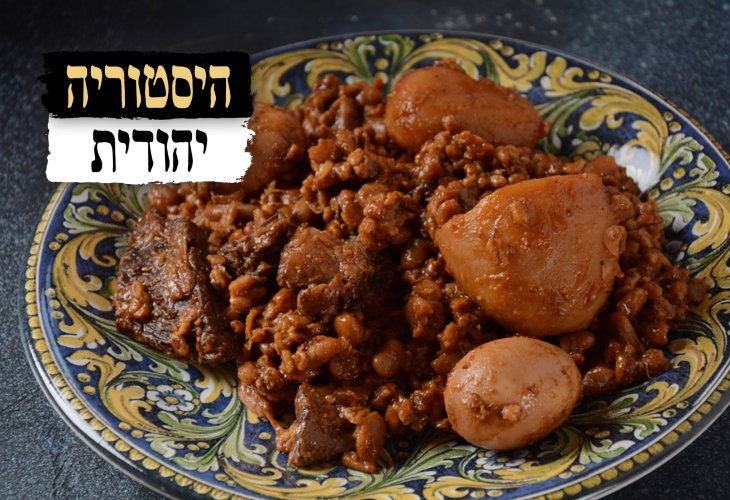History and Archaeology
Why Jews Eat Cholent on Shabbat: Faith, Tradition, and Resistance
How hot food became a symbol of honoring Shabbat, survived persecution in Europe, and remains a powerful expression of Jewish identity
 (Photo: shutterstock)
(Photo: shutterstock)It is a longstanding Jewish custom to eat hot food on Shabbat morning, in contrast to the practices of the Sadducees and Karaites, who do not keep a fire burning on Shabbat. They would sit in darkness and cold on Shabbat and eat cold food. Jewish law, however, commands us to honor and delight in Shabbat specifically through hot food.
To fulfill this mitzvah, Jewish women throughout the generations developed a wide range of recipes for dishes that would remain tasty and fresh even after cooking overnight. In every community and ethnic tradition, ḥamin (cholent) and its ingredients are known by different names.
How Far the Sages Went
The Sages emphasized the importance of eating hot food on Shabbat to such an extent that Rabbi Zerachiah HaLevi, one of the great early Spanish authorities in the time of the Rambam, wrote that one who does not eat cholent should be investigated, lest he be a heretic.
When Cholent Won Over the Nations
It is well known that non-Jews would occasionally ask for a small taste of cholent. One of them even wrote: “I marvel that I never described in my writings with what appetite, with what enthusiasm, with what devotion, with what heartfelt awareness I once devoured the ancient Jewish dish of ‘cholent’ at Dr. Strauss’s home!”
One of the most famous Jewish converts to Christianity in Germany, Heinrich Heine, even wrote a poem filled with praise and longing for the cholent he used to eat when he still observed the commandments of the Torah.
From Curiosity to Harassment
Yet more than they wished to taste cholent and fulfill “those who taste it merit life,” non-Jews often sought to harass and trouble the Jews. Thus, in the year 5689 (1929), the police commander of the Polish town of Kazimierz (today a historic district of Kraków) announced that Jews would no longer be allowed to place pots of cholent in ovens.
In earlier times, not every Jewish household could keep a stove burning all Shabbat, so it was customary to bring the cholent pots to the baker’s large oven, retrieve them on Shabbat morning, and eat them at home.
“Health Regulations” as an Excuse
As reported in the newspaper at the time: “His opinion is that placing cooked dishes in an oven intended for baking bread contradicts the laws of hygiene. Furthermore, dishes kept in an oven for 24 hours are also harmful to health.”
At that point, all that Agudat Yisrael could do was appeal to the district authorities to rescind the harsh decree (Davar, May 21, 1929).
The Decree Spreads Across Poland
Historian Dotan Goren relates: “In the following years, the culinary opinion of the police commander in Kazimierz spread throughout Poland and reached the capital. Thus, in early April 1936, Warsaw decided to impose a ‘new decree harming the livelihood of Jewish bakers.’”
It soon became clear that this was no April Fool’s joke, as “the health authorities banned most Jewish bakeries and Jewish bakers from storing cholent on Shabbat.”
The official justification was that “storing cholent by Jewish families in bakers’ ovens violates health regulations.” Before long, the outcry of Polish Jewry reached their brethren in England, where newspapers described their “terrible” situation and reported that the Polish government was legitimizing antisemitic persecution against the Jews (Haaretz, April 5, 1936).
Jewish Ingenuity Prevails
Thus, the Poles — renowned for their great compassion, joined other European nations that, at the same time, banned Jewish ritual slaughter. But the Jewish mind has always been more resourceful. In ways both legal and otherwise (which we are not permitted to detail here…), Jews managed to continue eating kosher, dignified food — and they still do so today.
We are not defeated so easily. And cholent — that, we will never give up.

